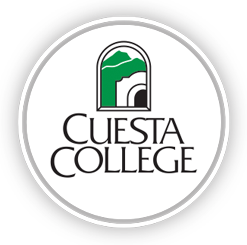About DSPS
Are you a recent high school graduate attending college for the first time? Watch the short video below to learn about what to expect as you transition to college.
Disability Support Programs & Services (DSPS) provides support services and educational
accommodations to students with disabilities so that they can have full and equitable
access to the community college experience.
DSPS assists colleges to provide academic adjustments, auxiliary aids, services and/or
instruction for students with disabilities to support their student success and to
meet the requirements of federal and State non-discrimination laws, including Sections
504 and 508 of the federal Rehabilitation Act, the Americans with Disabilities Act
(ADA), The Americans with Disabilities Amendment Act (ADAA), and State Government
Code Sections 11135-11139.5.
Section 504 of the Rehabilitation Act of 1973 states, "no qualified individual with disabilities shall, on the basis of their disability, be excluded from the participation in, be denied the benefits of or be subject to discrimination under any post-secondary program or activity receiving federal financial assistance."
Transition to College
In order to ensure that you have the same opportunity to succeed as any other student, colleges use academic adjustments and auxiliary aids commonly known as accommodations to help you participate in general activities, programs and classes offered by the college. It is important to keep in mind that as a college student you drive the process of requesting accommodations for a disability, including when or if to disclose your disability, by Applying to DSPS.
Differences between High School & College
There is no Special Education at the college level and instead of being guided by the Individuals with Disabilities Education Act (IDEA), colleges must comply with the Americans with Disabilities Act (ADA), Section 504 of the Rehabilitation Act and the Civil Rights Restoration Act. That means that if you choose to disclose your disability by applying to DSPS, you are not placed into easier courses and continue to be held to the same academic and behavioral standards as all students. At the same time, you are assured that your information is not shared with others without your consent and your instructors or other student services staff are only notified by DSPS in specific circumstances that you are entitled to certain accommodations.
| Differences Between: | High School | College |
|---|---|---|
| Policies and Procedures |
|
|
| Courses |
|
|
| Accommodations |
|
|
| Parent's or Legal Guardians's Role |
|
|
For more information on how to meet the requirements at the college level visit our Student Rights and Responsibilities page.
